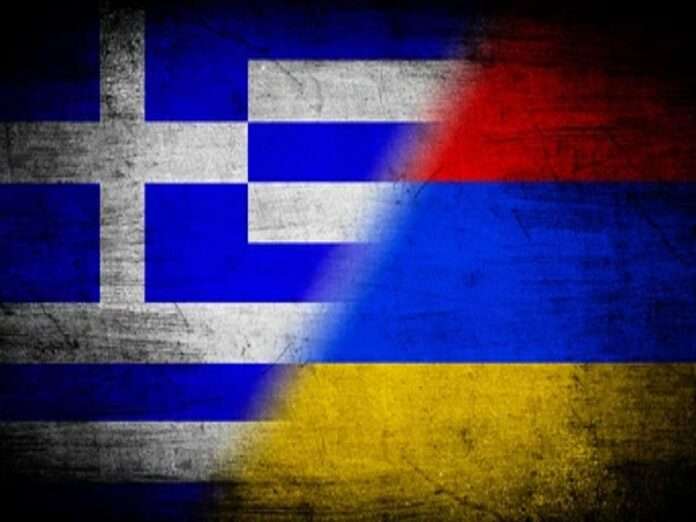Prime Minister Modi will visit to Greece next week in the first such trip for an Indian premier in four decades, during which time progress is expected to be made on the Arab-Mediterranean Corridor (ArMedCor). This Eurasian connectivity initiative will link South Asia and Europe via West Asia, with the potential for a supplementary corridor to the Black Sea via Iran, Armenia, and Georgia. Not only does it bypass the Suez Canal chokepoint, but also Turkiye, with whom those two and others have troubles.
India objects to Turkiye’s support of Pakistan’s position towards the Kashmir Conflict, while Greece is completely against its neighbor’s maritime claims in the Eastern Mediterranean. As for their Arab partners, relations with Ankara have surprisingly improved over the past year, but these countries still suspect that Turkiye harbors regional hegemonic intentions. Israel also doesn’t trust it either, but their ties have generally remained stable despite occasional drama, which has received outsized attention.
This context explains why the ArMedCor conspicuously avoids Turkiye, but that observation shouldn’t be interpreted as suggesting that India or others are seeking to “contain” it. Rather, Delhi and its partners only want to preemptively avert the scenario whereby Ankara could potentially leverage its transit role in an attempt to coerce concessions from them on sensitive issues. As regards India’s growing defense ties with Greece and Armenia, these are aimed at helping them balance Turkiye and protect their interests.
It’s true that those two countries’ interests are contradictory to their shared neighbor’s, which could lead to the US exploiting these differences for divide-and-rule purposes, but therein lies the importance of India’s envisaged role in their strategies. Unlike that declining unipolar hegemon, this rising Great Power wants to prevent conflicts, not stoke them. To that end, it wants to replace Russia’s lost role in their geopolitical balancing acts, though of course after having previously obtained Moscow’s tacit approval.
Russian-Greek relations were greatly damaged by Athens’ compliance with the West’s sanctions regime and some of its policymakers going along with the US’ information warfare narrative alleging that Russia’s largely excellent relations with Turkiye are at its expense. For these two reasons, Greece decisively pivoted towards the US and has been serving as a nationwide base for its operations in the Eastern Mediterranean, which led to Washington controlling access to and from the Black Sea.
Russian-Armenian relations have similarly worsened due to Yerevan de facto complying with the abovementioned sanctions regime in parallel with falling for a complementary US information warfare narrative alleging that Russia’s selfsame relations with Turkiye and also Azerbaijan are at its expense. Although Armenia formally remains part of the Russian-led CSTO and Eurasian Economic Union, it’s rapidly drifting towards NATO-member France, which poses serious challenges for Moscow.
Amidst Russia’s deteriorating ties with Greece and Armenia, which coincides with them gradually subordinating their sovereignty to the West in exchange for expected security guarantees against Turkiye, it makes sense for a trusted Russian partner like India to gently try to fill the void. Like it was earlier clarified, India doesn’t intend to “contain” Turkiye through economic-military means, but help Greece and Armenia protect their interests while counteracting some of the US’ pernicious influence.
In pursuit of this, these countries’ roles in the ArMedCor could provide their struggling economies with a lifeline to India’s surging one, which was the second-fastest growing one last year. Likewise, the cultivation of closer defense ties could remind their policymakers that they don’t have to entirely rely on Western wares for keeping Turkiye at bay, thus reducing the chances that they’re manipulated by the US into playing the role of “useful idiots” in any divide-and-rule conflict that it might try to cook up.
There’s no guarantee that either of these ambitious goals will succeed, though observers should at least understand what India wants to achieve, which isn’t to “contain” Turkiye but to assist Greece and Armenia’s balancing acts in parallel with preventing those two from becoming US vassals. With Russia no longer able to play this role with them like before, India has risen to the occasion with the Kremlin’s tacit approval, which represents yet another manifestation of their strategic partnership in action.







